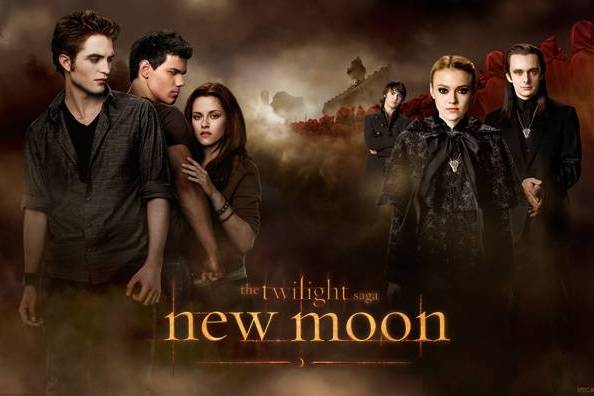Entries in Trademark Infringement (368)
Court Finds Nine Year Delay Too Long to Sustain Trademark Infringement Suit
Plaintiff ExperExchange, Inc., licenses its optical character recognition (OCR) software to manufacturers and software developers. Defendant DocuLex, Inc., is a software development company that sells document management software. In May 1999, DocuLex entered into a license agreement with ExperExchange.
In August 2008, ExperExchange filed suit in the Northern District of California, alleging that DocuLex breached the parties’ license agreement by using ExperExchange’s technology and trademarks in more than the one product the agreement authorized.
DocuLex defended on the ground of laches. It argued that because ExperExchange waited nine years to assert the License Agreement covered only a single product, DocuLex expended considerable resources developing products incorporating ExperExchange’s technology and trademarks, even though it could have switched to another OCR provider that could have provided it with substantially similar software at a similar price.
The court agreed.
“Here, both requirements for laches are met. First, Plaintiff unreasonably delayed in initiating this action. As discussed above, the undisputed fact that Plaintiff received royalty reports indicating that DocuLex was incorporating Plaintiff’s software into products other than PDF.Capture is enough to have given Plaintiff constructive notice of this conduct. Plaintiff’s assertion that it was unaware of certain features of PDF.Capture when it entered into the License Agreement, and therefore did not understand that Defendants’ conduct infringed its copyrights until recently, is unpersuasive. In particular, there is no evidence in the record from which a trier of fact could reasonably infer that Plaintiff could not have obtained this information had it acted with reasonable diligence when it learned that DocuLex was incorporating Plaintiff’s software into products other than PDF.Capture.
“Second, Defendants have demonstrated that they will suffer prejudice as a result of the delay. In particular, it is undisputed that DocuLex continued to incorporate Plaintiff’s [OCR] software into its products, many of which Plaintiff now alleges are infringing. Thus, the delay has prejudiced DocuLex by increasing the potential liability it faces with respect to these products. At the same time, DocuLex has continued to expend resources developing this products, in reliance on its presumed right to use the [OCR] software in them. Nor has Plaintiff presented any evidence to counter Defendants’ assertion that it could and would have used OCR scanner technology from another source had it realized that it would be faced with potential liability based on use of Plaintiff’s products.
“Accordingly, the Court concludes that Plaintiff’s claims for copyright and trademark infringement are barred under the doctrine of laches.”
Parties Agree that Plaintiff Has Exclusive Right to "Seattle Home Show" Trademark

There’s only one “Seattle Home Show.” And it’s run by Seattle Home Show Inc.
That’s what plaintiff Seattle Home Show Inc. and defendant HSD, LLC, agreed in a Stipulation and Agreed Order of Dismissal filed in the Western District on Nov. 18.
Plaintiff is in the business of operating a home building and remodeling trade show under the SEATTLE HOME SHOW registered trademark.
Plaintiff claimed that defendant began promoting a competing trade show under the SEATTLE HOMESHOW DAILY and HOMESHOW SEATTLE DAILY trademarks. Plaintiff also claimed defendant ran a radio ad stating, “If you are planning to remodel, don’t wait for the Home Show, come to the Seattle Home Show Daily.”
The parties’ agreement, which Judge Ricardo Martinez signed, terminates the trademark infringement suit plaintiff brought in September.
The parties’ agreement states that plaintiff “owns and possesses the exclusive right to use and register the SEATTLE HOME SHOW” trademark. It provides that defendant will not:
- “[U]se, display or seek registration of any trademark, service mark, trade name, sponsored link, key word or ad word consisting of or incorporating the prohibited terms ‘SEATTLE HOME SHOW’ or ‘HOME SHOW SEATTLE,’” or variations, including those that incorporate the term DAILY (such as HOMESHOW DAILY SEATTLE); or
- “[U]se, display or seek registration of any trademark, service mark, or trade name comprising the terms ‘SEATTLE’ and ‘HOME’ or ‘SEATTLE’ and ‘HOME SHOW,’” though defendant will not be prohibited from “providing a geographic description of its stores in its advertising materials, such as, ‘Homeshow Daily, with two convenient locations in Seattle and Federal Way….’”
The case cite is Seattle Home Show Inc. v. HSD, LLC, No. 09-1359 (W.D. Wash.).
Twilight-Themed Restaurant Re-Thinking Its "Volterra" Name
 Fans can get their fix at a forthcoming Twilight-themed restaurant,
Fans can get their fix at a forthcoming Twilight-themed restaurant,
though it may not be named Volterra.
The owners of a forthcoming Twilight-themed restaurant are thinking twice about their name.
Tim and Annette Root own Dazzled by Twilight, a Forks, Wash., gift store centered on the locally-set vampire book series that’s popular with today’s youth. They plan to expand on the theme with a new restaurant, which they initially named Volterra. (For those not in the know, including me, Volterra is where Twilight’s vampire aristocracy hangs out.)
The plans continue, but the name may not. Turns out, an Italian restaurant with the same name is located in Seattle. (Volterra also is a city in Italy.)
Volterra-Seattle has been around since May 2005. Its owner, Volterra, LLC, obtained a federal registration for VOLTERRA and Design for restaurant and bar services and spices in 2006.
The letter the Seattle restaurant’s lawyer sent the Roots have led them to consider a new name.
“We are very adamant about the restaurant and we will open it,” Mr. Root told the Peninsula Daily News.
“But we will see what we need to do about the naming situation.”
News story here.
Topline Agrees to Injunction to Settle Adidas Lawsuit Over Shoe Stripe Designs

As folks may remember, Adidas America, Inc., sued The Topline Corp. in the Western District for trademark infringement. (STL post here.)
Looks like the parties have settled.
On Nov. 13, they filed a proposed Permanent Injunction on Consent and Stipulated Dismissal, which will dismiss the parties’ claims and counterclaims against each other. It also defines the two-, three-, and four-stripe designs that Topline will be permanently enjoined from using (such as those depicted above), including:
- “[T]hree straight stripes of the same type (irrespective of color), all of which have fifteen degrees or less between any adjacent stripes on a men’s size 9 shoe (or of a corresponding degree accounting for the gradation of other sizes), the stripes being formed by contrasting colors, lines of stitching, fabric, perforations, raised or depressed portions, serrated or non-serrated, of substantially equal width (that is, within 20%) and substantially equal and uniform spacing …, extending across the shoe upper….;
- “[T]wo straight stripes of the same type (irrespective of color), with fifteen degrees or less between the stripes on a men’s size 9 shoe (or of a corresponding degree accounting for the gradation of other sizes)….;
- “[F]our straight stripes of the same type (irrespective of color), all of which have fifteen degrees or less between any adjacent stripes on a men’s size 9 shoe (or of a corresponding degree accounting for the gradation of other sizes)….;
- “[T]wo, three or four stripes of the same type (irrespective of color) formed as described … above, serrated or non-serrated, of equal width and spacing, that are angled forward and extending across the mid-foot portion of the shoe upper toward the sole, which are slightly curved, and which do not include one or more stripes or other linear marking extending across the stripes that are more prominent than the two, three or four stripes….”
The injunction, of course, won’t take effect unless and until it’s signed by the court.
The case cite is Adidas America, Inc. v. Topline Corp., No. 09-646 (W.D. Wash.).
Car-Freshner Corp. Sues Getty Images for Trademark Infringement
 Plaintiffs claim defendant licenses this and other photos containing
Plaintiffs claim defendant licenses this and other photos containing
tree designs that are confusingly similar to their own.
 On Nov. 9, Car-Freshner Corp. and Julius Samann Ltd. (JSL) filed suit in the Northern District of New York against Seattle’s Getty Images, Inc., for trademark infringement. Car-Freshner claims it licenses various trademarks from JSL, including a number of registered tree designs in connection with “absorbent body impregnated with a perfumed air deodorant,” “cleaning products,” and “air fresheners.”
On Nov. 9, Car-Freshner Corp. and Julius Samann Ltd. (JSL) filed suit in the Northern District of New York against Seattle’s Getty Images, Inc., for trademark infringement. Car-Freshner claims it licenses various trademarks from JSL, including a number of registered tree designs in connection with “absorbent body impregnated with a perfumed air deodorant,” “cleaning products,” and “air fresheners.”
Plaintiffs claim they learned that “Defendant was promoting and licensing digital media for commercial use through the Getty Images Web Site that included one or more tree designs which are identical to, virtually indistinguishable from and/or confusingly similar to Plaintiffs’ distinctive Tree design Marks.” This, plaintiffs claim, constitutes trademark infringement, unfair competition, and dilution.
Getty Images has not yet answered plaintiffs’ complaint.
The case cite is Car-Freshner Corp. v. Getty Images, Inc., No. 09-1252 (N.D.N.Y.).